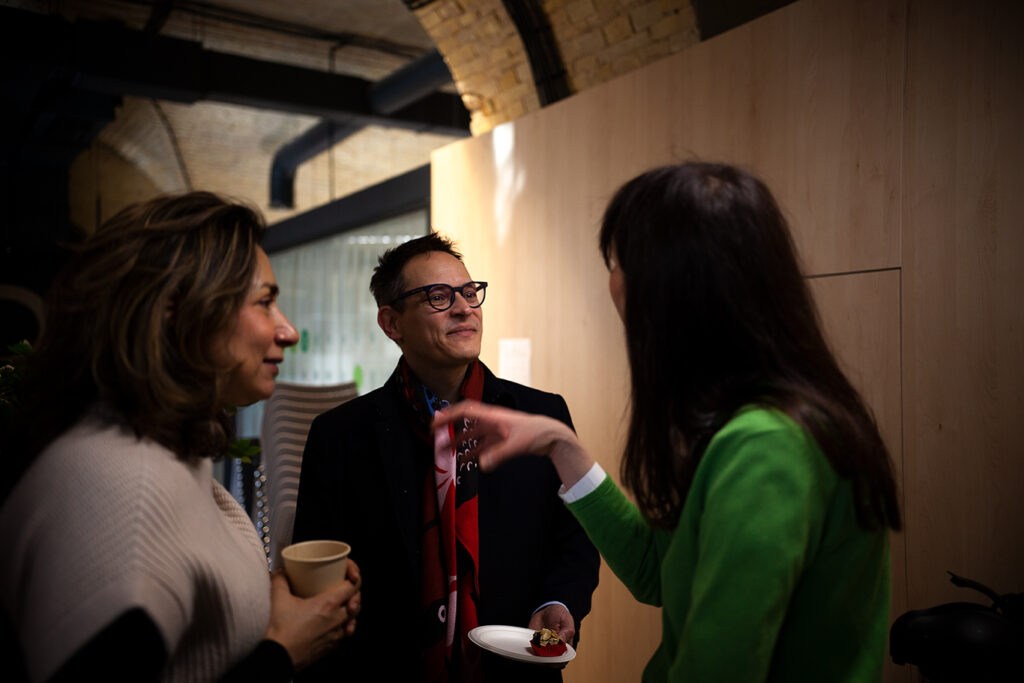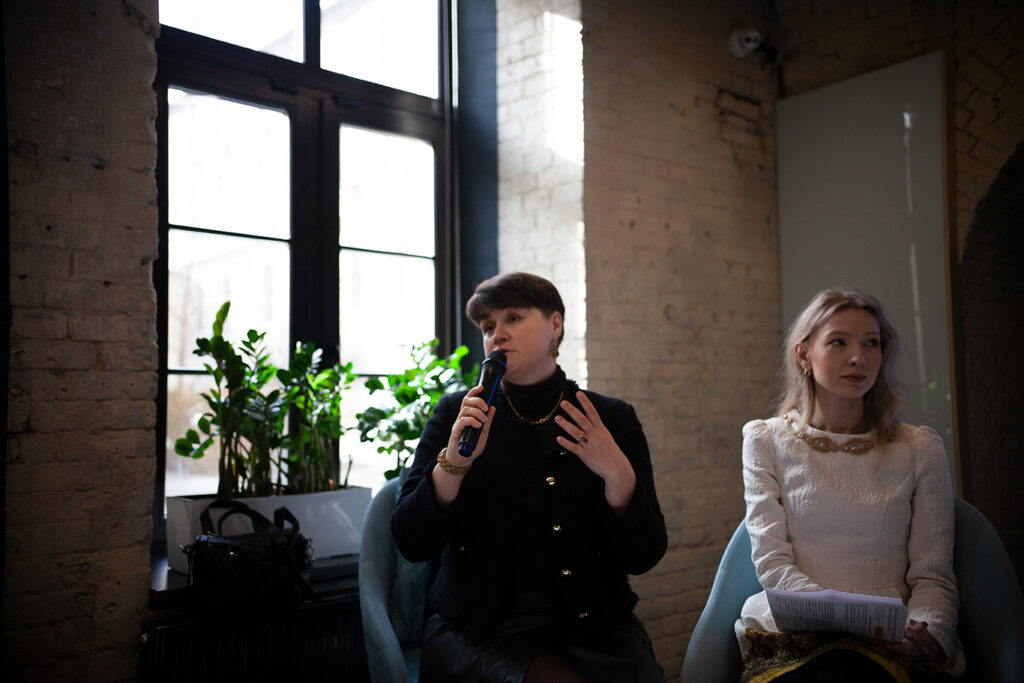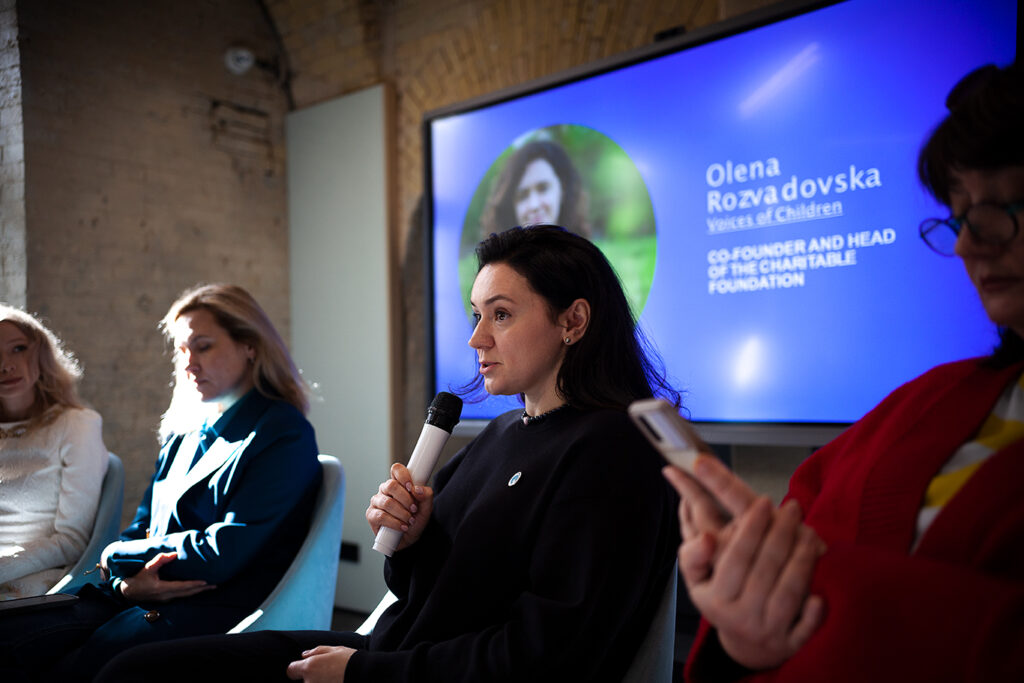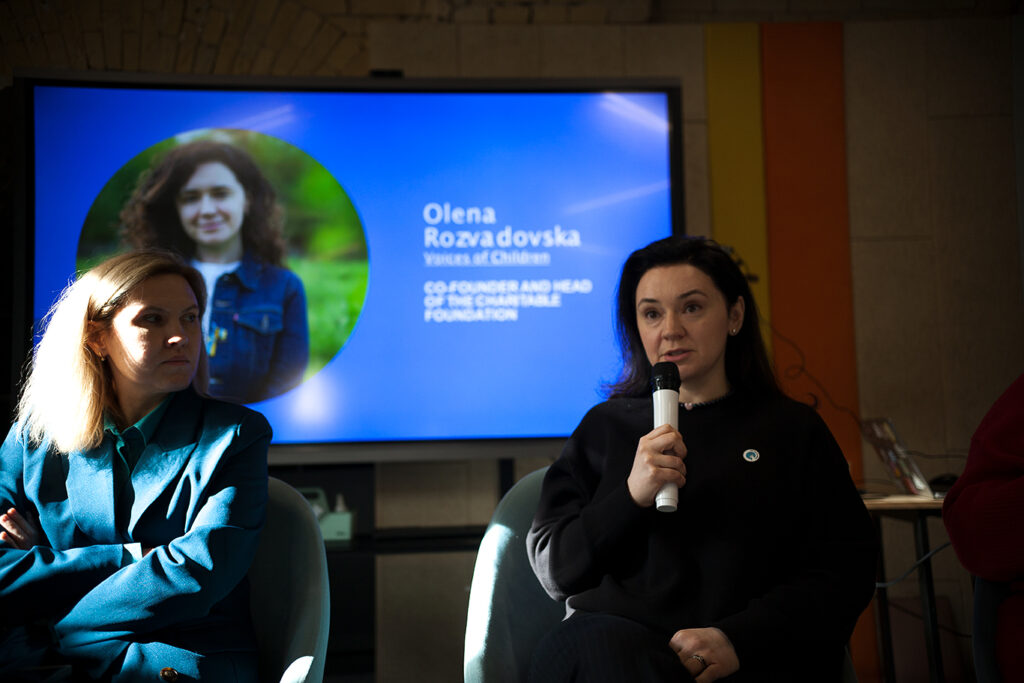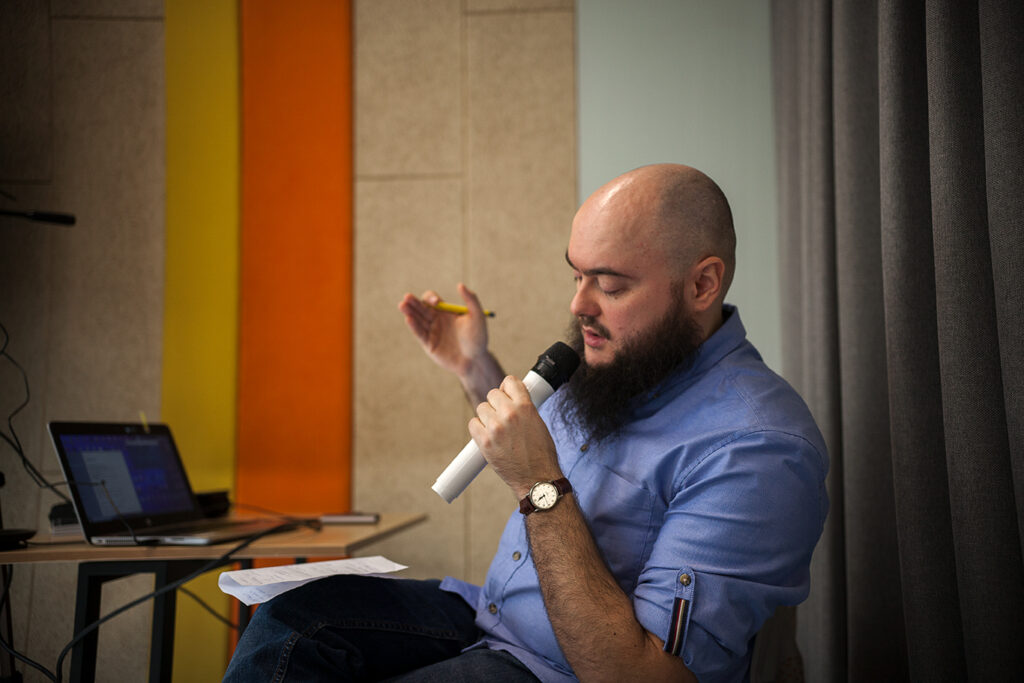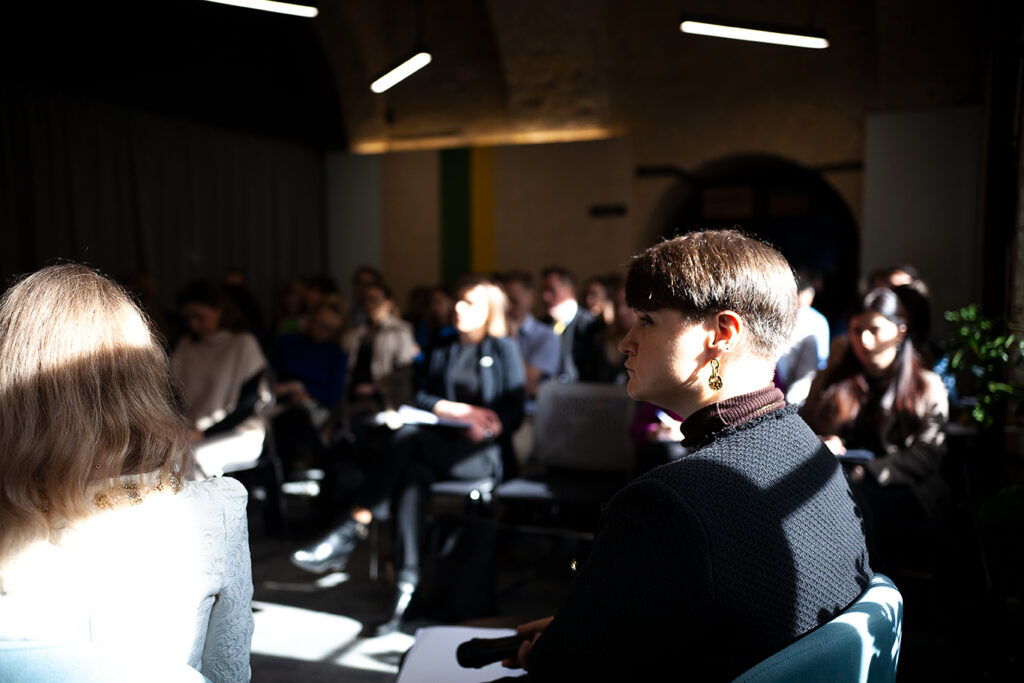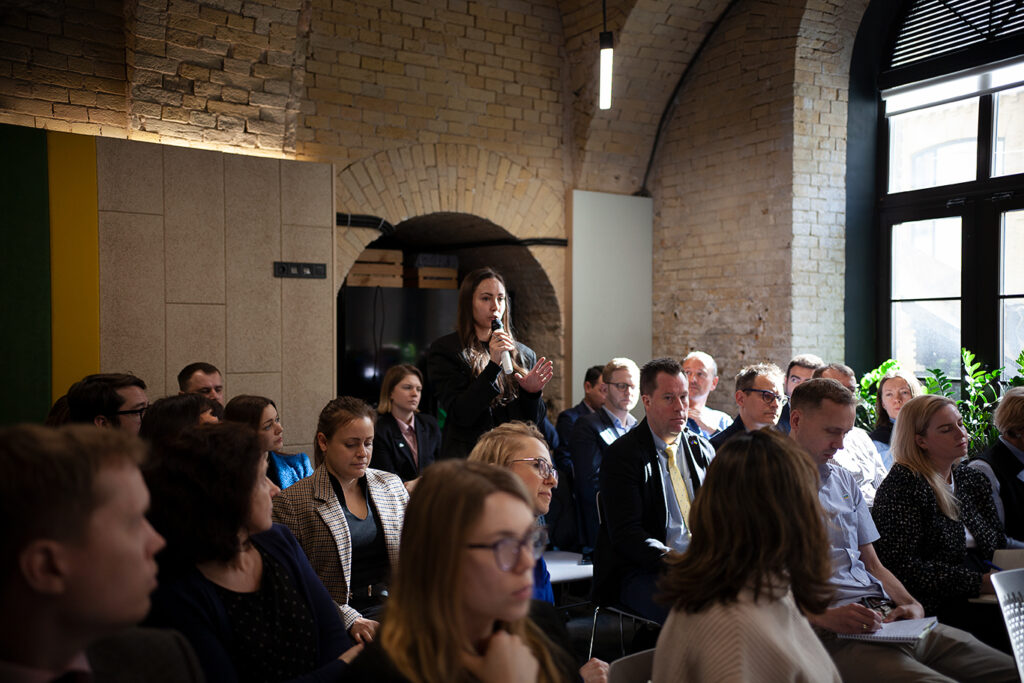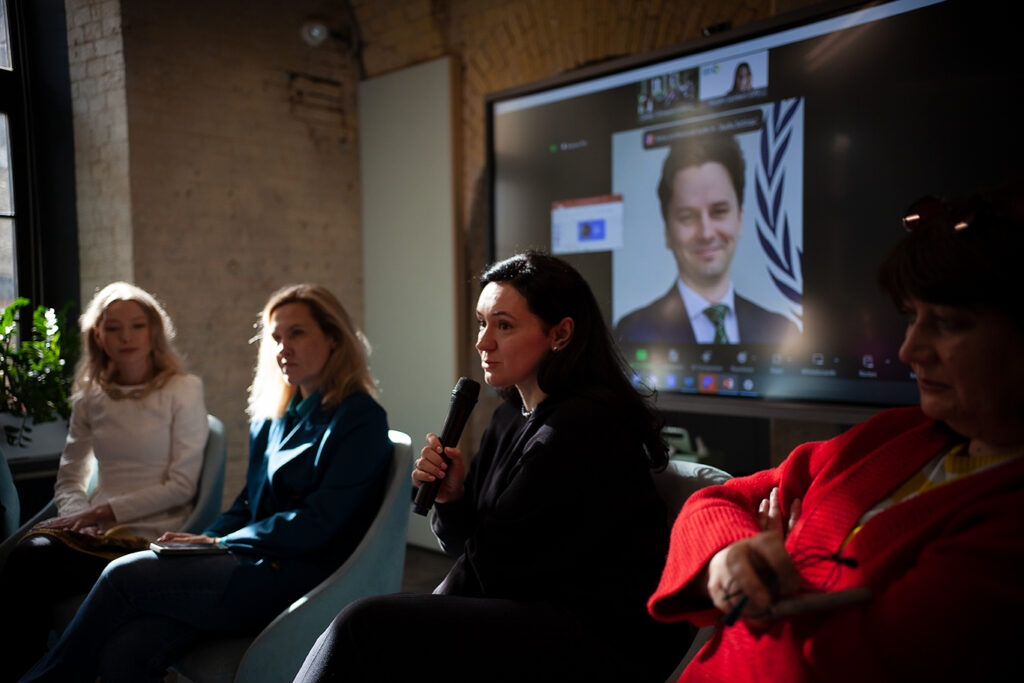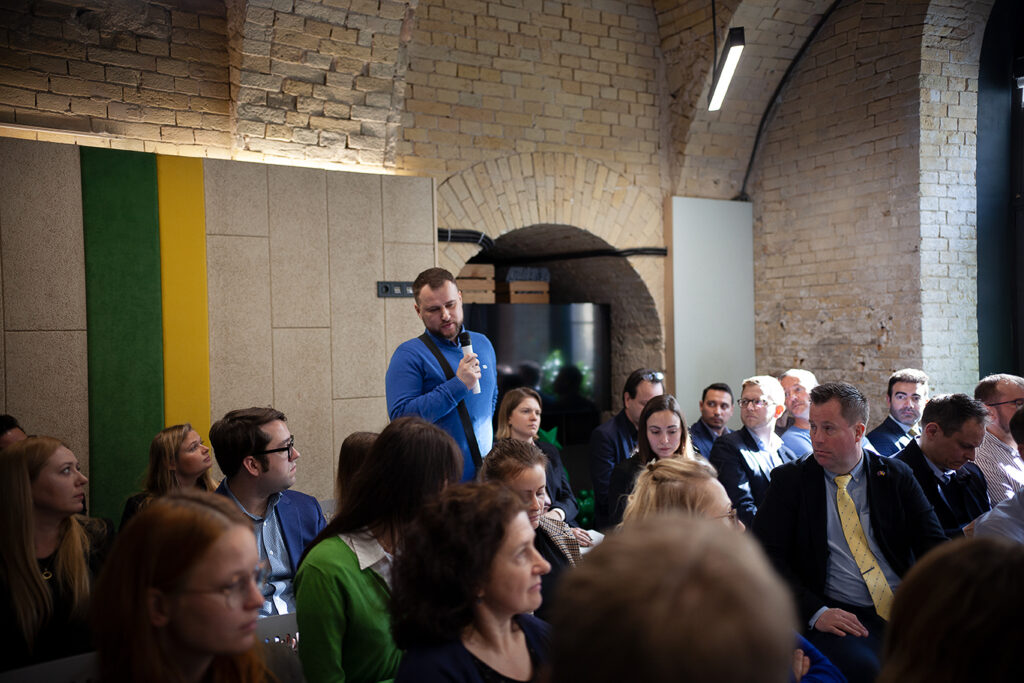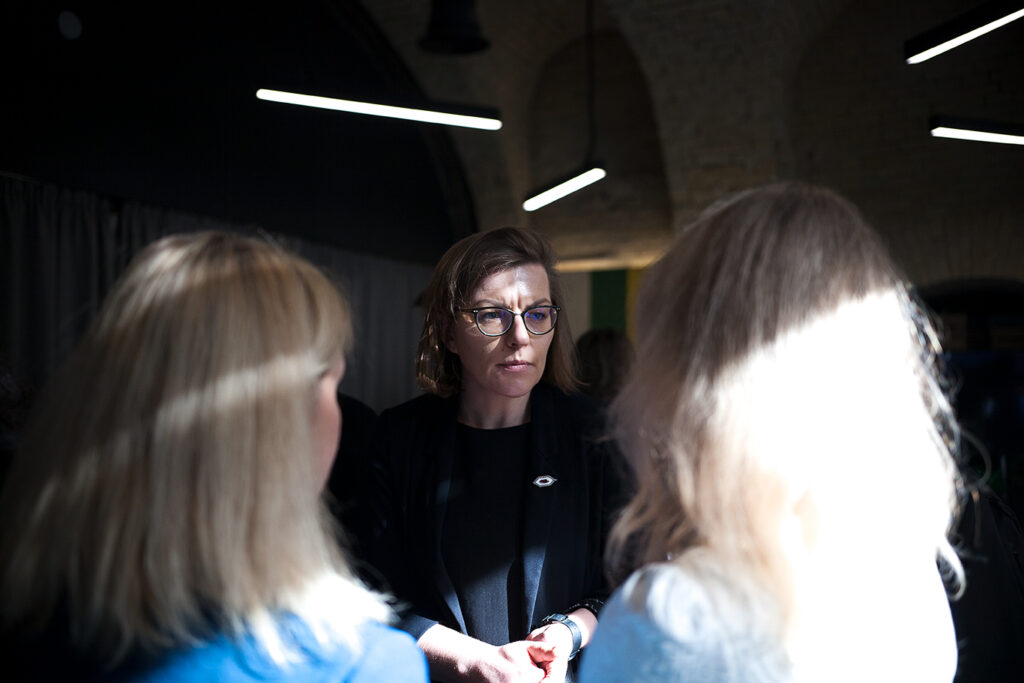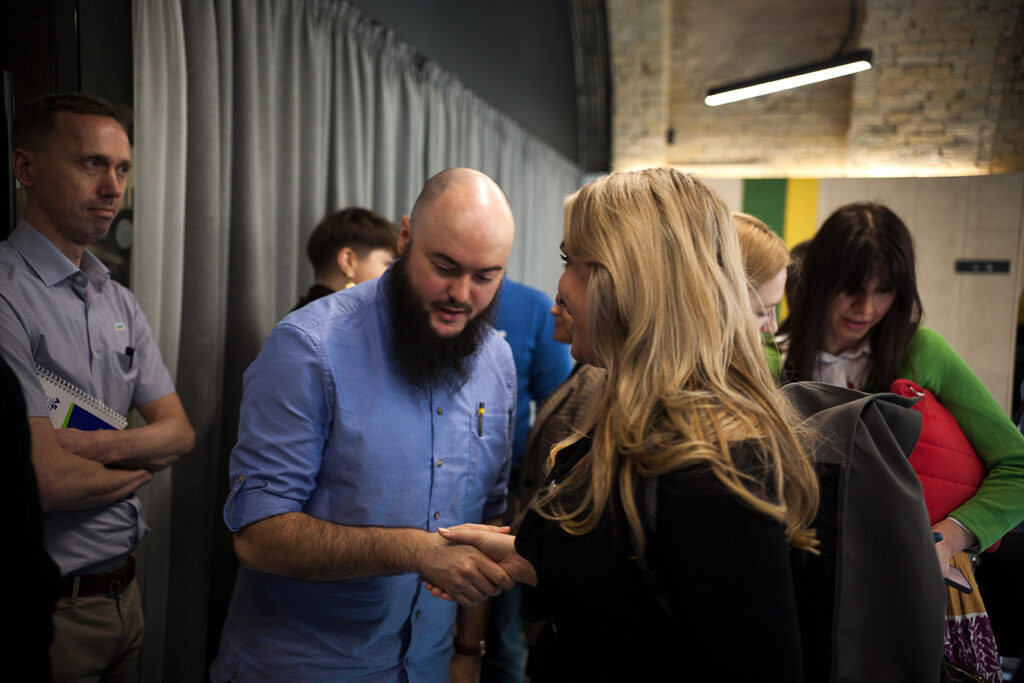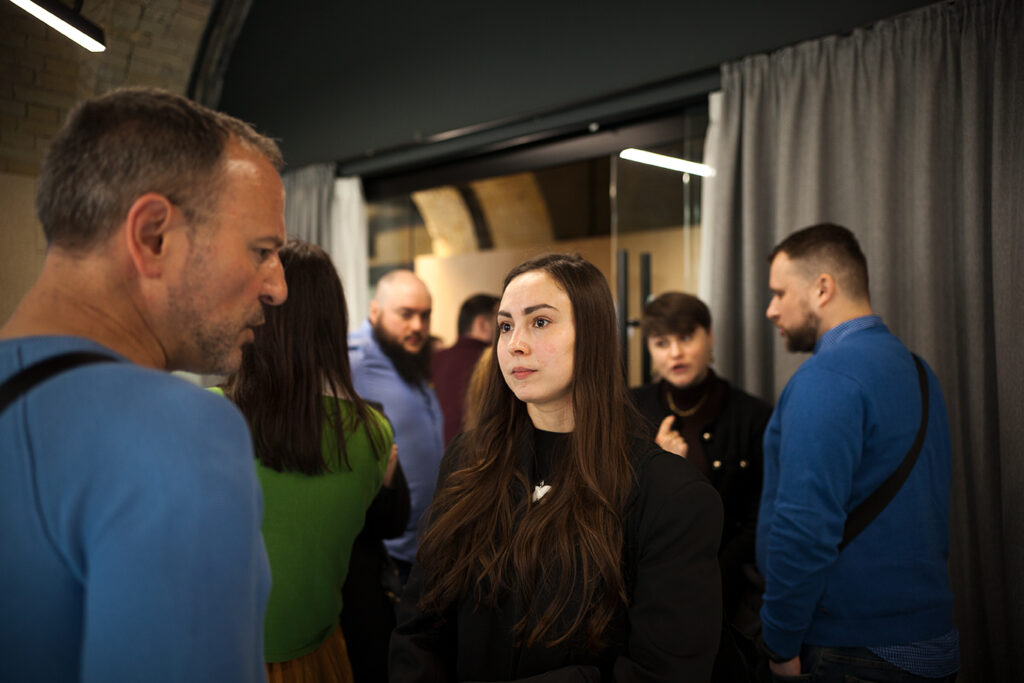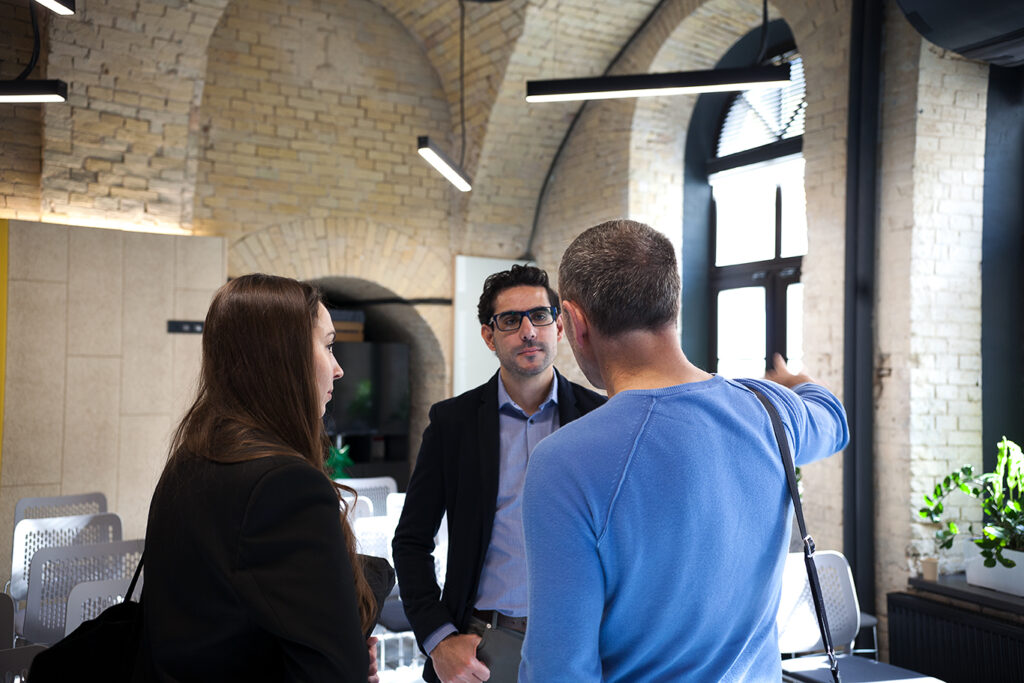“Children are the present and the future for which Ukraine is fighting”: Center for Civil Liberties and partners condemn forced removal and deportation of Ukrainian children to Russian Federation
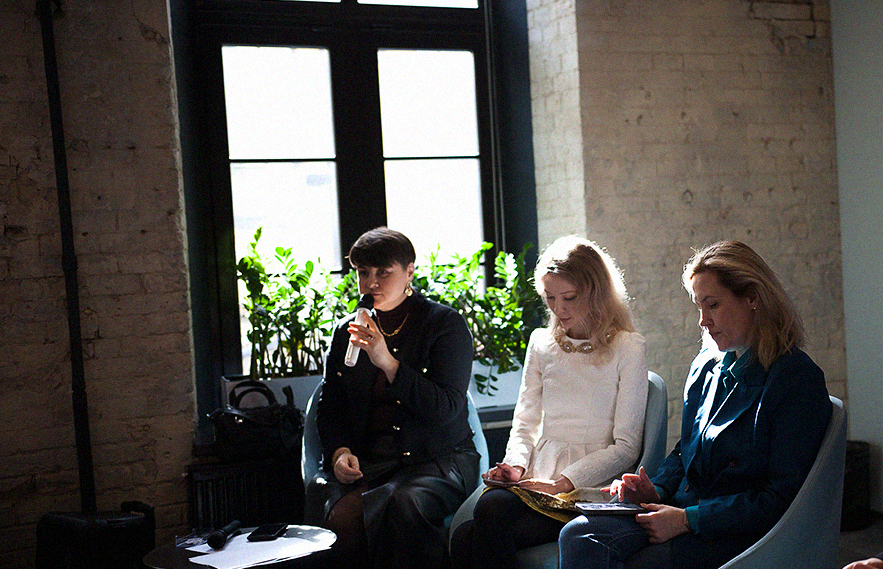
On 27 February 2024, the Center for Civil Liberties held an event titled “Forced removal and deportation of Ukrainian children to the Russian Federation: responsibility and return”, with the support of the United States Agency for International Development (USAID) and Pact. Presenters discussed the overall practice of forced removal and re-education of children by Russia, the prospects of children’s return to Ukraine, and existing obstacles, as well as the role of governments and international organizations.
In her opening remarks, CCL’s Executive Director Oleksandra Romantsova pointed out that children were among the most vulnerable in Ukraine’s communities affected by the war that has been ongoing for over ten years.
“Children are not just the present but also the future for which Ukraine is fighting,” said Romantsova.
Event panelists included Kateryna Rashevska, legal counsellor from the Regional Center for Human Rights NGO; Olena Rozvadovska, Co-founder and Head of the Holosy Ditey (Voices of Children) charity; Darya Kasyanova, Program Director of the SOS Dytiachi Mistechka Ukraina (SOS Children’s Villages Ukraine); Mariam Lambert, founder of the Dutch charity “Orphans Feeding Foundation”; Valentyna Potapova, Director for National Advocacy in Education, Center for Civil Education “Almenda”; and Andrey Vasiliev, Director of the Legal Department, National Anti-Crisis Management (Belarus).
Participants represented embassies of the EU Member States, USA, and the United Kingdom, and children’s rights organizations.
“Ukrainian children are not accidental victims of this armed conflict; they are specifically targeted by Russia that tries to alter their identity,” stated Kateryna Rashevska. She relayed the story of a Ukrainian boy who was deported from Russian-occupied Mariupol to Moscow Oblast. “Bohdan repeatedly but unsuccessfully attempted to escape; he was beaten and bullied. Eventually, they tried to forcefully conscribe him into the Russian army. Luckily, we managed to return him. However, are we able to organize such rescue operations for over one million children?” “We are facing the enormous task of bringing the culprits to justice – on top of repatriating, rehabilitating, and reintegrating the deported children,” added Rashevska.
“When we first encountered the problem of repatriating the children, we did not understand how it could possibly work. We turned to various international organizations, but they responded that they had no corresponding mandate. Returning institutionalized children is a separate kind of challenge, as they are placed in special camps in the occupied territories. All of these children had seen their homes ruined and their loved ones killed; they are deeply traumatized and will need our help with rehabilitation upon returning to Ukraine,” said Darya Kasyanova.
“The involvement of the public is very important for the return of the children; funding relevant NGOs is essential. I call on the representatives of embassies to assist in every way they can. Brokering a peace treaty means that Ukraine would have to decide which of its cities and territories to give up. However, those who insist on this do not comprehend that living under occupation is not a ‘peace deal’, it is merely a different kind of war. People living on the occupied territories will be subjected to torture again and again,” emphasized Mariam Lambert.
“We now have the opportunity to speak from big stages, but I never would have wanted to talk about these children and the tragedy they are experiencing. No one prepared us for this. The children require a nurturing environment, psychosocial support, and rehabilitation. We need social workers, teachers, and psychologists who are prepared to work with such trauma,” said Olena Rozvadovska.
Valentyna Potapova focused her remarks on Russia’s efforts to destroy the Ukrainian identity of the deported children and force them to become Russian. According to Potapova, there are now over 1.5 million such children. Targeted “programs” have been developed for this purpose, including the so-called Universitetskie smeny (University Shifts). At first, this “program” covered only the occupied areas of Donetsk and Luhansk regions but later expanded to all other occupied territories of Ukraine. In 2022, over ten thousand Ukrainian children were enrolled for “re-education”, followed by another ten thousand in 2023 with the “program’s” expansion. The initiative is supported by universities subordinated to the Ministry of Science and Higher Education of the Russian Federation. Its mandatory component is “patriotic education” aimed to expose the children to “Russia’s greatness”. The program also contains a psychosocial component which, among other, involves limiting children’s contact with their loved ones.
“Partners to this ‘program’ include many well-known [Russian higher education institutions], and, unfortunately, we have found out that numerous universities from other countries continue to collaborate with them despite their involvement in this crime,” reported Potapova.
Andrey Vasiliev noted that Belarus had played an active part in the deportation and re-education of Ukrainian children. He added that the children had been drawn into meetings with organizations loyal to the current regime in Belarus and forced to study military disciplines. According to Vasiliev, [Belarus’s self-proclaimed President] Lukashenko stated that he was, quoting Vasiliev, “a hero in this story” and that he would use funds from a joint budget co-allocated for the purpose by [Russian President] Putin.“We believe that the culprits from both Russia and Belarus must be brought to justice,” Vasiliev stressed.
In her concluding remarks, Oleksandra Romantsova reiterated that all concerned stakeholders had to work towards ensuring the return of Ukrainian children, as well as towards putting a stop to the practice of deportation and re-education. “This can likely take years. But we can do it with the help of our international partners. Once the children are returned, we must bring those responsible for the crime of genocide against Ukrainians to justice.”
Author: Viktoriia Mamoilyk, the intern at the Center for Civil Liberties.
This event was organized by Center for Civil Liberties as part of its project implemented under the USAID/ENGAGE activity, which is funded by the United States Agency for International Development (USAID) and implemented by Pact. The contents of this event are the sole responsibility of Pact and its implementing partners and do not necessary reflect the views of USAID or the United States Government.

